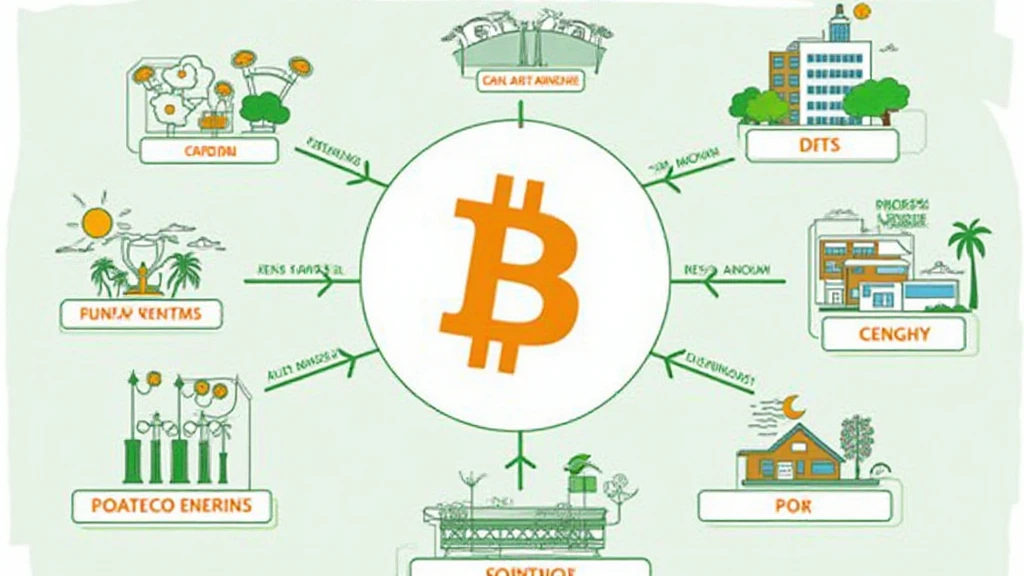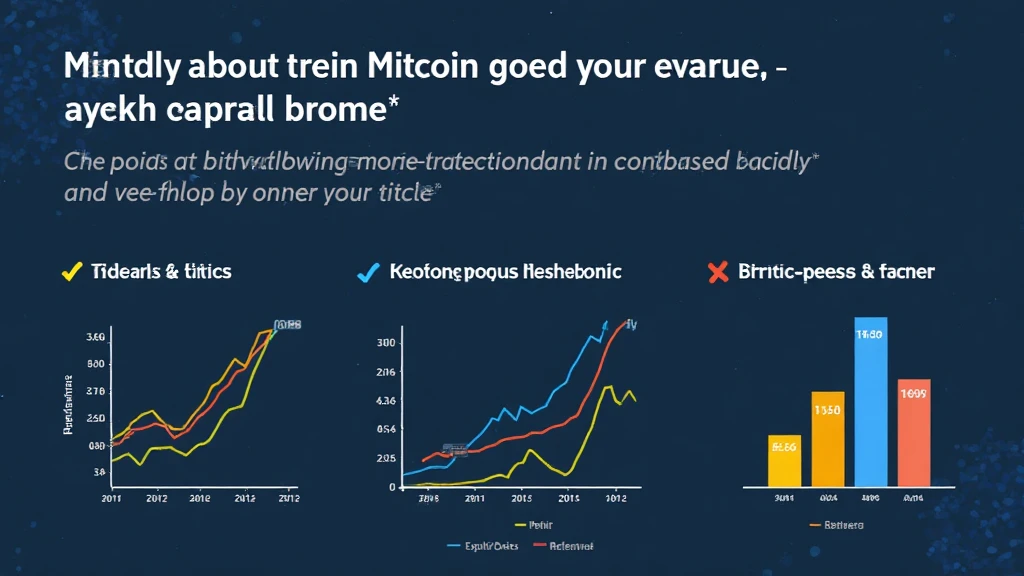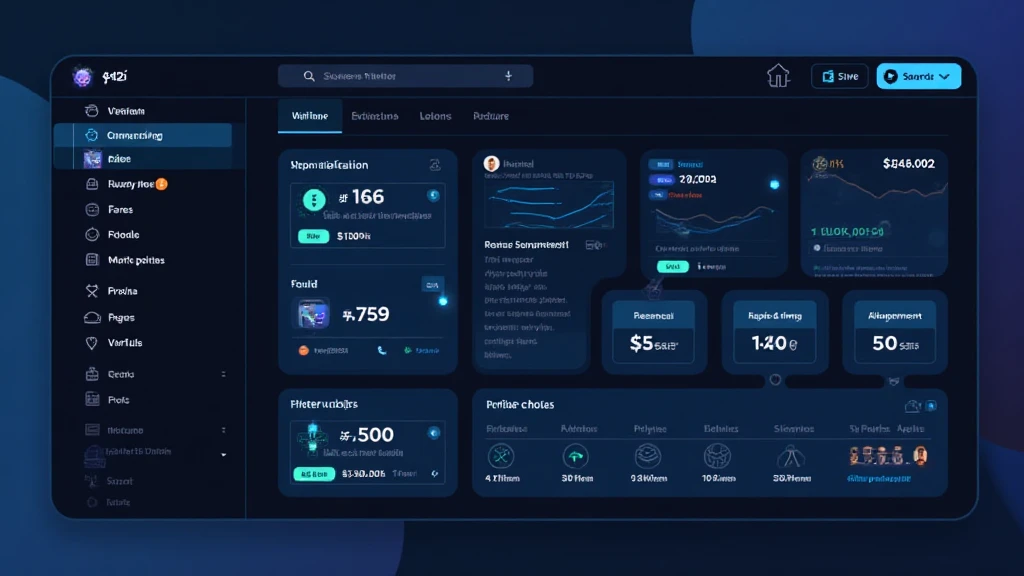Bitcoin Carbon Offset Programs: A Sustainable Future for Cryptocurrency
With the rise of cryptocurrencies, concerns about their environmental impact have also grown significantly. In fact, recent studies show that Bitcoin mining contributes approximately 0.5% to the global electricity consumption. As a response to these concerns, many innovative solutions have emerged, including Bitcoin carbon offset programs. These programs aim to mitigate the carbon footprint associated with Bitcoin transactions and mining. In this article, we’ll dive deep into how these initiatives work, their importance, and their future outlook in the evolving digital asset landscape.
Understanding Bitcoin’s Carbon Footprint
Bitcoin is often critiqued for its energy-intensive Proof-of-Work (PoW) consensus mechanism. In 2023 alone, Bitcoin mining consumed around 134 terawatt-hours (TWh) of energy, raising serious environmental concerns. Here’s why understanding Bitcoin’s carbon footprint is vital:
- Environmental Impact: The energy used during mining often comes from fossil fuels, contributing to greenhouse gas emissions.
- Public Perception: Increased awareness around climate change means users are becoming more conscious about their cryptocurrency choices.
- Regulatory Scrutiny: Governments are more actively considering regulations linked to the environmental impacts of cryptocurrencies.
What are Bitcoin Carbon Offset Programs?
Bitcoin carbon offset programs are initiatives designed to compensate for the carbon emissions produced during Bitcoin mining and transactions. They function by funding environmental projects that absorb or prevent the emission of greenhouse gases. Let’s break it down further:

- Carbon Credits: Each offset project generates carbon credits, which can be purchased by Bitcoin miners and users to balance out their emissions.
- Types of Projects: These programs often fund renewable energy projects, reforestation, and conservation efforts.
- Transparency and Verification: Reputable offset programs carry out rigorous monitoring to ensure that promised environmental benefits are delivered.
The Role of Technology in Carbon Offsetting
Blockchain technology plays a pivotal role in ensuring transparency and efficiency in carbon offset programs. Here’s how:
- Immutable Records: Transaction records on the blockchain cannot be altered, providing a tamper-proof history of carbon credits.
- Smart Contracts: These can automate the verification process, minimizing the risk of fraud in offset transactions.
- Global Participation: Blockchain allows participants from around the world to engage in offsets, democratizing access to clean energy projects.
The Importance of Bitcoin Carbon Offset Programs
As a cryptocurrency investor or user, you might ask, “Why should I care about carbon offsetting?” Here are some compelling reasons:
- Enhancing Credibility: Engaging in offset programs can improve public perception of Bitcoin, addressing environmental concerns.
- Competitive Edge: As we approach 2025, eco-friendly initiatives could attract more users and investors.
- Cultural Shift: Programs foster a culture of sustainability in the cryptocurrency community.
Challenges Facing Bitcoin Carbon Offset Programs
While these programs have immense potential, they are not without challenges:
- Lack of Awareness: Many users are still uninformed about how to participate in offset programs.
- Verification Issues: Some offset projects might lack robust verification processes.
- Market Volatility: The crypto market’s inherent volatility can make long-term commitments to offsets challenging.
The Future of Bitcoin Carbon Offset Programs
As carbon offsetting becomes more mainstream, we can expect further developments:
- Integration with Exchanges: Major Bitcoin exchanges could start offering integrated offset options for users.
- Innovation in Projects: More innovative projects, such as carbon-neutral Bitcoin mining operations, are likely to emerge.
- Regulatory Support: Governments may begin to incentivize participation through tax benefits or subsidies.
Understanding the Vietnamese Market for Bitcoin Carbon Offset Programs
In recent years, Vietnam has witnessed exponential growth in digital currency adoption. Current statistics show that the Vietnamese crypto user growth rate stands at 40% year-on-year. This trend presents a unique opportunity for the proliferation of carbon offset initiatives:
- Engaging the Youth: As a tech-savvy population, young Vietnamese individuals can drive demand for eco-friendly Bitcoin.
- Local Projects: Projects focused on forest restoration and renewable energies can significantly impact Vietnam’s environmental goals.
- Legislative Support: The Vietnamese government’s positive stance towards cryptocurrencies bodes well for the future of these initiatives.
The Takeaway: A Path Toward a Greener Crypto Sphere
As we reflect on the intersection of Bitcoin and sustainability, it becomes pivotal for the cryptocurrency community to recognize the importance of carbon offset programs. The practices not only helps establish a more positive image for Bitcoin but also actively contributes to global sustainability efforts. By utilizing innovative technology and engaging stakeholders, we accelerate the transition towards a greener future for cryptocurrencies.
In summary, engaging with Bitcoin carbon offset programs offers a multifaceted approach to addressing environmental concerns. Each participant, from miners to enthusiasts, can play a crucial role. If you’re interested in becoming part of this movement, explore programs and make your transactions more sustainable.
For effective and responsible participation in these initiatives, always consult local regulations and sustainability experts. Remember, while the journey towards a sustainable cryptocurrency future is paved with challenges, the rewards are immense.
Be part of the change and consider supporting Bitcoin carbon offset programs as a path to fostering sustainability in the evolving crypto landscape.





